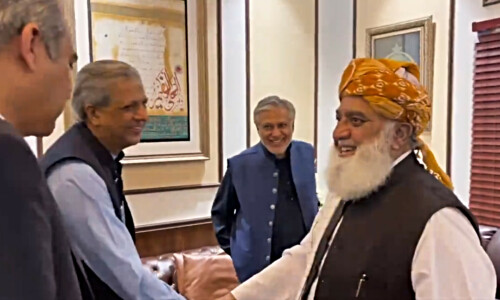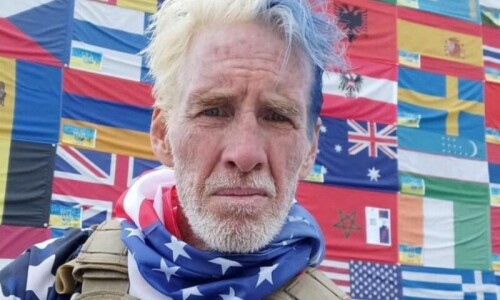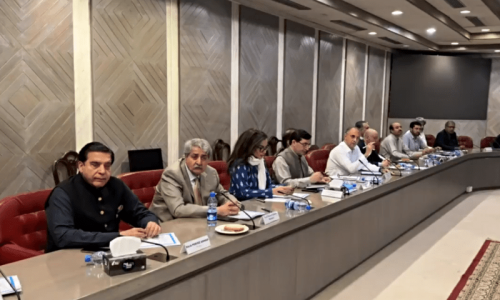BANGKOK, April 2: Painstakingly tough negotiations on how to fight climate change are getting even harder as concerns mount that the global economy is heading into recession.
Even when the economic outlook looked brighter, the United States led criticism that the existing Kyoto Protocol’s requirements on cutting greenhouse gases would prove too costly for rich countries.
As more than 160 nations talk here about what to do after Kyoto’s obligations end in 2012, the backdrop is tepid growth in major developed economies and widening fallout from the troubled US housing sector.
“There’s no question it’s going to make enacting climate policy more difficult,” said Angela Anderson, head of the global warming campaign at the Washington-based Pew Environment Group.
“The economic situation is going to make the fight about cost containment versus ambitious emissions reductions that much more controversial,” she said.
Anderson and other environmentalists hope policymakers see the long-term benefits of fighting global warming, which UN scientists say could affect millions of people and cause the extinction of animals and plants by later this century.
A study last month by the US Environmental Protection Agency said that legally capping emissions in the world’s largest economy would shave only one per cent from growth in gross domestic product by 2030.
The Apollo Alliance, a US green initiative, argues that a major drive to end US reliance on foreign oil would create three million new jobs.
But Alan Oxley, a former Australian ambassador who leads the pro-globalisation group World Growth, said that green technologies were not yet economically viable.
“If we try and engineer a new economy, we would have the same success as the Soviet communist party,” he said.
Mr Oxley, a critic of the Kyoto Protocol, said that curbing emissions would inevitably reduce consumption, particularly of energy, and would hit developing economies particularly hard.
The European Union has championed fresh binding cuts in emissions of up to 40 per cent by 2020 from 1990 levels. But US President George W. Bush’s administration has pushed for greater commitments from developing economies such as China and India.
Japan, concerned about its fragile recovery from recession in the 1990s, has recently pressed calls to shift the base year for future emissions cuts from 1990 to 2005, easing the burden on Asia’s largest economy.—AFP













































Dear visitor, the comments section is undergoing an overhaul and will return soon.